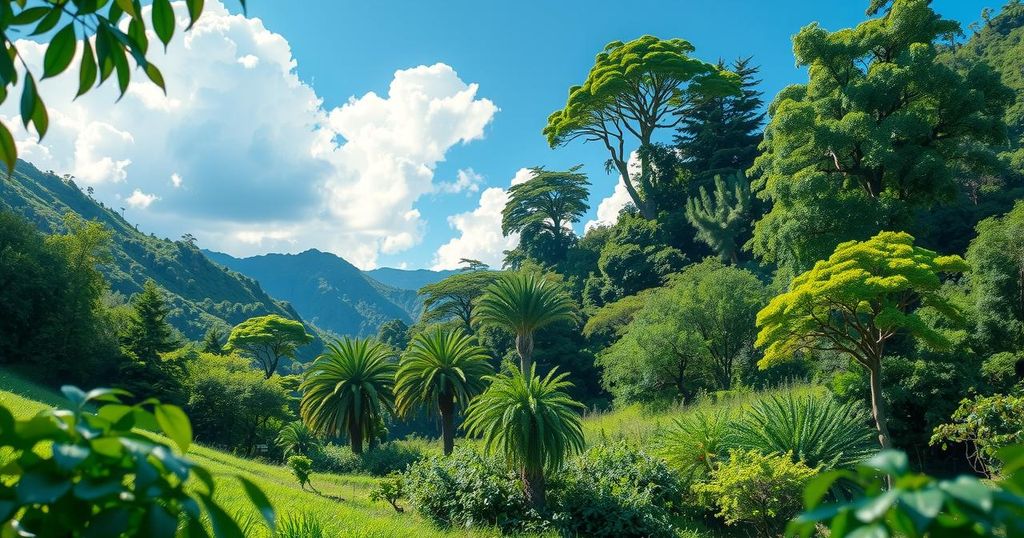Indigenous leaders in Palawan, Philippines, have launched the country’s first locally-owned forest carbon project to combat deforestation by selling carbon credits. This landmark deal protects 39,000 hectares of forest, benefiting over 12,000 Indigenous people. The initiative aims to inspire global Indigenous-led carbon projects while fostering community management and engagement.
Indigenous leaders from Palawan, Philippines, have signed a significant agreement to initiate the nation’s first locally-owned forest carbon project. This initiative aims to assign a monetary value to the carbon stored in the trees, incentivizing the preservation of the forest through the sale of carbon credits. Therefore, maintaining the forest’s health becomes more economically beneficial compared to deforestation.
This agreement, facilitated by Conservation International and the National Commission on Indigenous Peoples, seeks to safeguard approximately 39,000 hectares (97,000 acres) of forest within the Mount Mantalingahan Protected Landscape, recognized as an ecological frontier. Indigenous communities, particularly around 12,000 individuals, depend on these forests for their livelihoods, contending with threats from illegal mining and logging.
Reports indicate that Indigenous peoples serve as the most effective guardians of their forests. Panglima Norlito Silnay of the Pala’wan Indigenous group expressed aspirations for community management of the project, free from external exploitation. “I hope the project can be managed by the community without interference from business or individuals seeking to take advantage of the resources,” Silnay noted.
Looking beyond local impacts, the initiative aims to inspire similar Indigenous-led carbon projects globally. Wilson Barbon of Conservation International highlighted the agreement’s role in recognizing Indigenous communities as essential stakeholders in carbon management.
Though the carbon trading market in the Philippines is emerging, the government’s infrastructure for carbon credit sales remains underdeveloped. Barbon acknowledged ongoing debates concerning carbon credits but maintained optimism regarding the potential for this project to set a benchmark that incorporates biodiversity and community engagement. “Instead of shutting down the entire system, we strive to improve it,” Barbon asserted.
Revenue from carbon credits is anticipated to begin in the following year, with proceeds reinvested into conservation efforts in the region. The project exemplifies a progressive approach toward environmental stewardship and community empowerment in the Philippines.
The signing of the landmark carbon deal by Indigenous leaders in Palawan marks a pivotal step toward forest conservation in the Philippines. By establishing economic incentives via carbon credits, this initiative not only seeks to curb deforestation but also strengthens Indigenous rights and community management. As the framework for carbon trading develops, this project may serve as a model for similar efforts globally, fostering broader recognition of Indigenous stewardship in environmental conservation.
Original Source: www.conservation.org




